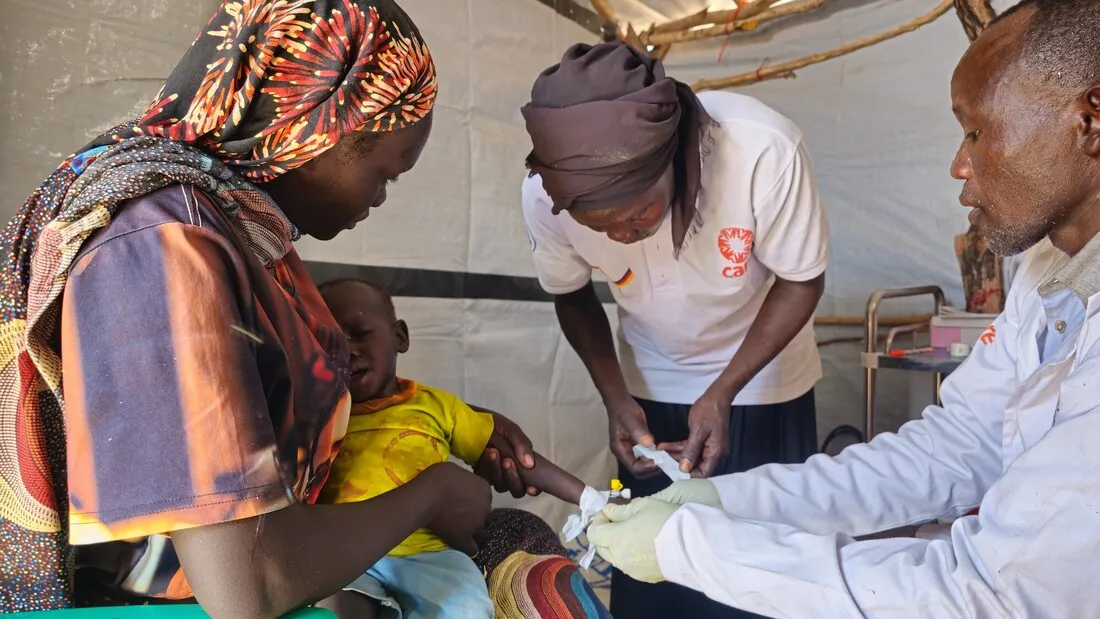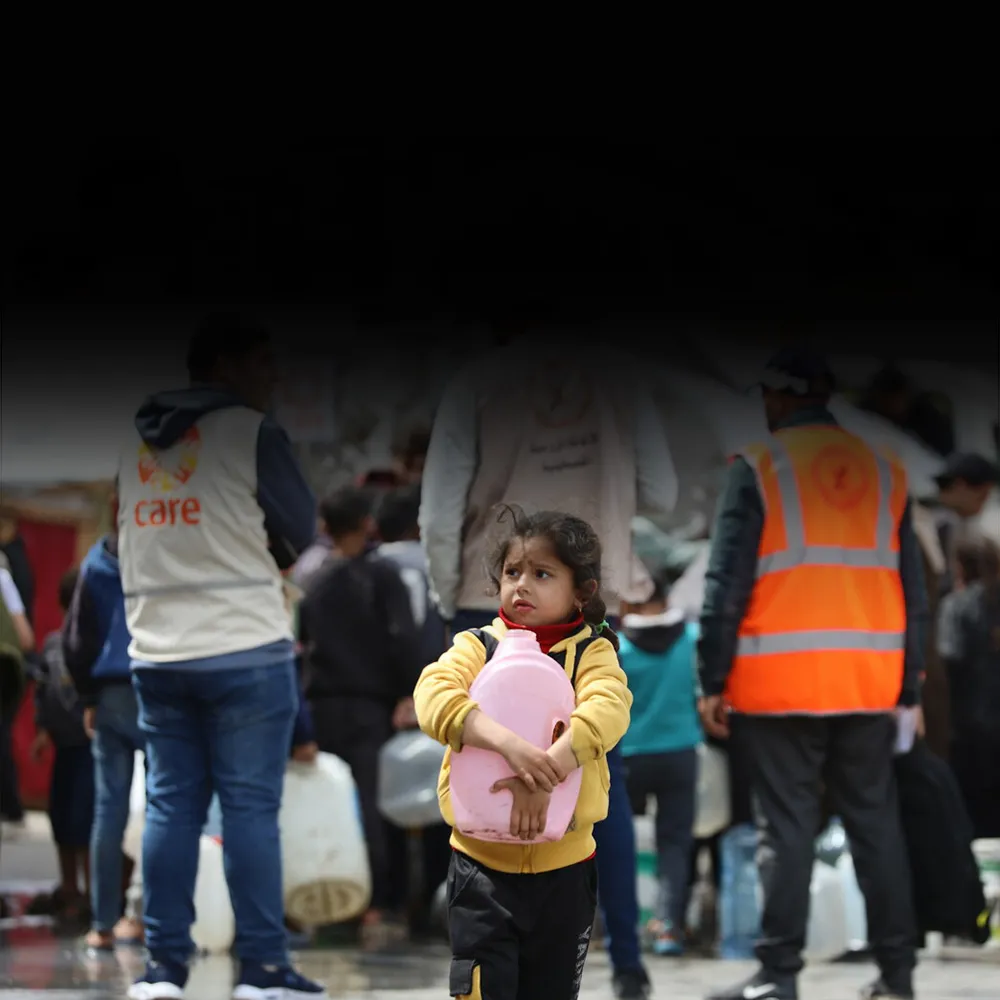Events such as natural disasters, environmental shocks, armed conflict, and political unrest have especially devastating consequences for women and girls. The risks of pregnancy and childbirth become life-threatening, and incidents of violence rise sharply.
In 2025, an estimated 92 million people affected by crises will need protection from violence and more than 11 million pregnant women will require life-saving reproductive health services.
In such complex settings, CARE partners with local organizations and governments to deliver life-saving assistance. CARE also takes measures to improve existing health systems for more efficient and timely response.
CARE’s emergency response aims to act fast and provide help that respects everyone’s rights, puts people first, and is sensitive to their different needs, with a special focus on women and girls.


